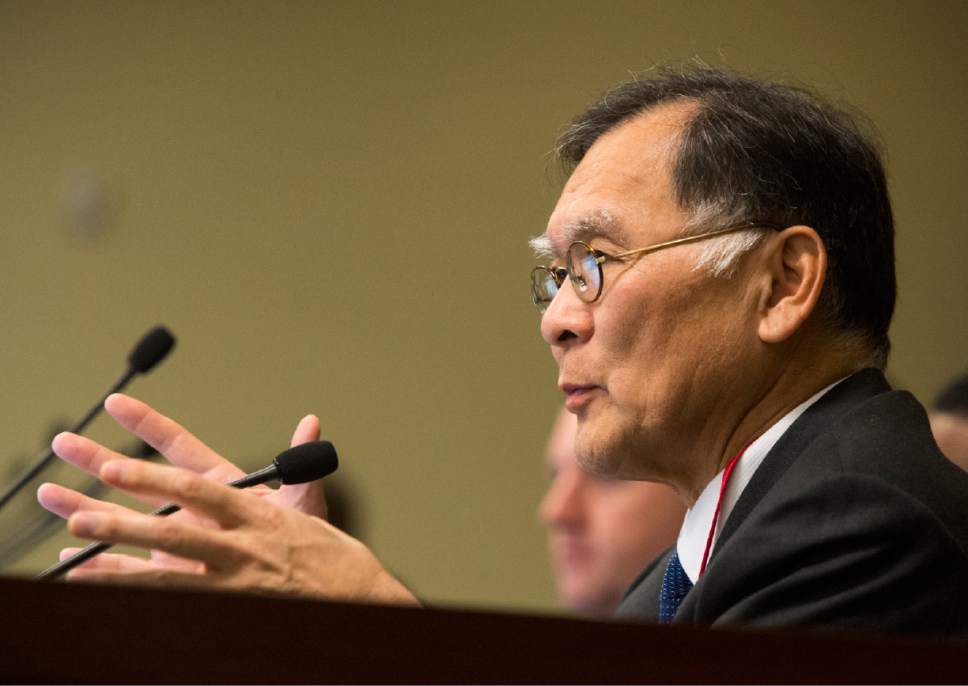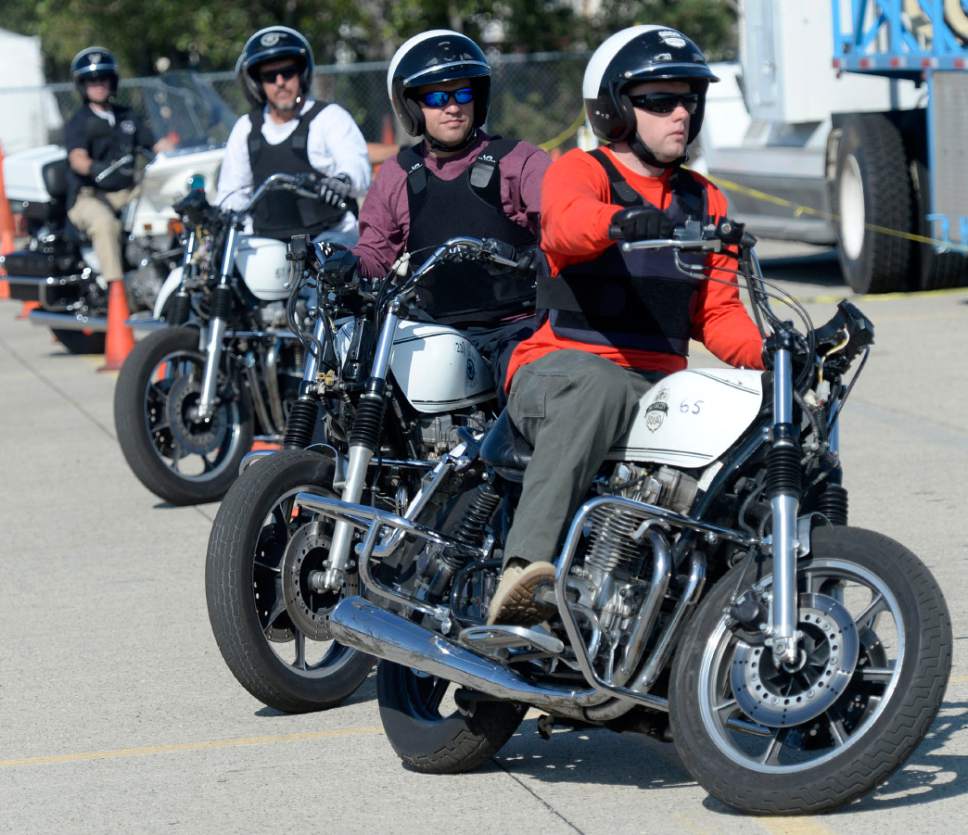This is an archived article that was published on sltrib.com in 2017, and information in the article may be outdated. It is provided only for personal research purposes and may not be reprinted.
The Utah Senate gave preliminary approval on Tuesday to a bill that would require motorcyclists up to the age of 21 to wear helmets.
Currently the requirement is in place for cyclists under the age of 18.
Senators voted 18-10 for SB159 to expand the helmet law.
"We know that 18- to 20-year-olds are, in fact, a little more impulsive," said bill sponsor Sen. Brian Shiozawa, R-Cottonwood Heights. "We also know that after using a helmet, most likely people will use it for a lifetime, or at least be able to make intelligent decisions."
Shiozawa, an emergency room doctor, said motorcycle riders face higher levels of critical and serious injury from traffic collisions than automobile drivers.
Motorcycle deaths and injuries present a cost to the state through health-care services, he said, and can be damaging to other individuals involved in an otherwise minor traffic collision.
"Most of the time people will walk away from those injuries," Shiozawa said. "But not with a motorcycle."
Sen. Howard Stephenson, R-Draper, said he has a consistently conservative voting record, which might suggest he would oppose mandating that Utahns wear helmets.
But he said the bill presents a conservative solution to health care costs, which currently transfer the burden onto taxpayers for an individual's decisions to ride a motorcycle without protective headgear.
"We are all paying for other people's decisions to be stupid," Stephenson said. "We have to realize that a conservative value means we're not going to shift costs to other people."
Other lawmakers questioned the value of restricting personal freedoms. Sen. Alan Christensen, R-North Ogden, described the bill as "legislative creep," and Sen. Jacob Anderegg, R-Lehi, suggested the line between age 20 and age 21 is unenforceable without other traffic violations.
"Even when we try to put penalties on things," Anderegg said. "It doesn't change people's motivation."
Shiozawa said he understood the concern regarding personal liberty, but added that a temporary mandate for young adults is justified to achieve increased public safety.
"The facts are there," Shiozawa said. "We can save lives and prevent injury at a small sacrifice."
Before moving to the House for consideration, SB159 requires an addition vote in the Senate.
Twitter: @bjaminwood





